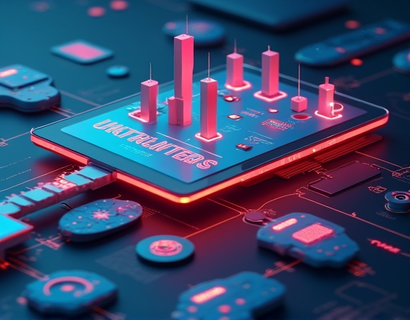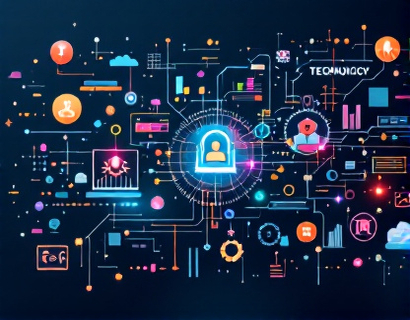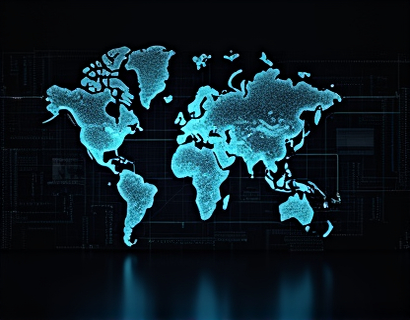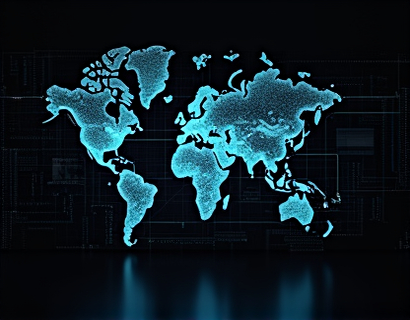Decentralized DAO Launch: Streamlining Autonomous Venture Creation with Advanced Tools and Resources
The emergence of Decentralized Autonomous Organizations (DAOs) represents a paradigm shift in the way businesses and ventures are created and managed. By leveraging blockchain technology and smart contracts, DAOs offer a novel approach to governance, ownership, and decision-making. However, the process of launching and managing a DAO can be complex and daunting for many entrepreneurs and tech innovators. This article delves into the intricacies of streamlining the creation and operation of DAOs, introducing advanced tools and resources designed to simplify and enhance this process.
The concept of a DAO revolves around the idea of a self-governing organization where decisions are made collectively by its members, typically through a token-based voting system. This decentralized structure eliminates the need for traditional hierarchical management and allows for greater transparency and accountability. Despite these advantages, the initial setup and ongoing management of a DAO require a robust framework and specialized tools to ensure smooth operations and effective governance.
To address these challenges, a comprehensive platform has been developed to empower businesses and organizations in launching and managing their own DAOs. This platform serves as a one-stop-shop, offering a suite of advanced tools and resources that facilitate every stage of the DAO lifecycle, from conception to operation. By integrating these tools, entrepreneurs can overcome the barriers associated with traditional venture creation and fully harness the potential of decentralized autonomous entities.
Streamlining the DAO Launch Process
The first step in creating a DAO is to define its purpose, structure, and governance model. This involves several critical tasks, including drafting the DAO's charter, selecting the appropriate blockchain platform, and designing the smart contracts that will underpin the organization's operations. Each of these steps requires a deep understanding of blockchain technology, smart contract development, and legal considerations.
To simplify this process, the platform provides a template-based approach for drafting the DAO charter. This template ensures that all essential elements are included, such as the mission statement, membership criteria, voting mechanisms, and dispute resolution processes. By using a pre-built template, users can focus on customizing the charter to fit their specific needs without starting from scratch.
Next, the selection of a blockchain platform is crucial. The platform offers a comparative analysis tool that evaluates different blockchain networks based on factors such as scalability, security, and community support. This helps users make an informed decision about the most suitable platform for their DAO, considering their specific requirements and goals.
Smart contract development is another critical aspect of DAO creation. The platform provides a visual programming environment where users can design and test smart contracts without extensive coding knowledge. This environment includes a library of pre-built contract templates and a step-by-step guide to help users understand each component of the contract. By streamlining smart contract development, the platform reduces the risk of errors and ensures that the contracts are both secure and functional.
Enhancing Governance and Decision-Making
Effective governance is the lifeblood of any DAO. The platform includes tools to facilitate transparent and efficient decision-making processes. A key feature is the proposal and voting system, which allows members to submit and vote on proposals that impact the DAO's operations. The system ensures that all proposals are clearly defined, with detailed descriptions and potential impacts, and that voting is conducted in a secure and verifiable manner.
To enhance the governance process, the platform offers a real-time analytics dashboard. This dashboard provides insights into member participation, proposal trends, and voting outcomes. By monitoring these metrics, DAO administrators can identify areas for improvement and ensure that the organization remains responsive to its members' needs and expectations.
Another important aspect of governance is the management of tokens and rewards. The platform includes a token economics module that helps users design and implement a token distribution plan. This module considers factors such as initial token distribution, staking mechanisms, and reward structures to ensure a balanced and fair token economy. By carefully managing token economics, DAOs can incentivize participation and maintain the motivation of their members.
Operational Efficiency and Integration
Once a DAO is launched, ongoing management and operational efficiency are essential for its success. The platform offers a comprehensive toolkit to streamline various administrative tasks, from member onboarding to financial management. A membership management system ensures that new members can easily join the DAO, with automated verification processes to maintain the integrity of the membership roll.
Financial management is another critical area where the platform excels. It includes a blockchain-based accounting system that tracks transactions, manages budgets, and ensures transparent financial reporting. This system integrates with popular accounting standards and provides real-time insights into the DAO's financial health, enabling administrators to make informed decisions.
To further enhance operational efficiency, the platform offers integration capabilities with other decentralized applications (dApps) and services. This allows DAOs to seamlessly connect with tools for social media, communication, and project management, creating a cohesive ecosystem that supports the DAO's activities. By leveraging these integrations, users can avoid the hassle of managing multiple disparate systems and focus on their core objectives.
Security and Compliance
Security and compliance are paramount in the decentralized space, where the risk of fraud and regulatory issues can significantly impact a DAO's success. The platform incorporates advanced security features to protect the DAO's assets and data. This includes multi-signature wallets for critical transactions, regular security audits of smart contracts, and real-time monitoring for suspicious activities.
Compliance with regulatory requirements is another area of focus. The platform provides resources and guidance to help DAOs navigate the complex landscape of decentralized regulations. This includes templates for compliance documentation, checklists for regulatory considerations, and access to legal experts specializing in blockchain and DAOs. By ensuring compliance, DAOs can operate with confidence and avoid potential legal pitfalls.
Community Building and Engagement
A strong community is vital for the long-term success of a DAO. The platform includes tools to foster community engagement and build a vibrant ecosystem around the DAO. A dedicated community forum allows members to discuss ideas, share updates, and collaborate on projects. The platform also supports the creation of sub-communities focused on specific interests or initiatives, enabling more targeted and effective communication.
To further enhance community engagement, the platform offers a gamification module. This module introduces elements such as badges, leaderboards, and rewards to incentivize active participation and contribution. By gamifying the experience, the platform encourages members to take a more active role in the DAO's governance and development.
Conclusion
The launch and management of a Decentralized Autonomous Organization (DAO) can be a complex endeavor, but with the right tools and resources, it can also be a highly rewarding experience. The platform introduced in this article provides a comprehensive suite of features designed to streamline every aspect of the DAO lifecycle, from launch to operation. By leveraging these advanced tools, entrepreneurs and tech innovators can overcome the challenges associated with traditional venture creation and fully embrace the potential of decentralized autonomous entities.
As the decentralized landscape continues to evolve, the ability to quickly and efficiently establish a DAO will become increasingly valuable. The platform not only simplifies the process but also empowers users to innovate and lead in this new frontier of business and governance. Whether you are a seasoned entrepreneur or a tech enthusiast, the tools and resources available can help you unlock the full potential of DAOs and contribute to the growth of a more decentralized future.










































